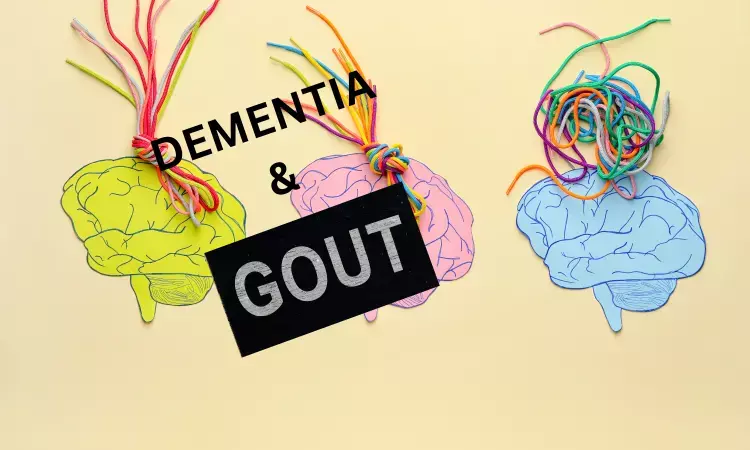- Home
- Medical news & Guidelines
- Anesthesiology
- Cardiology and CTVS
- Critical Care
- Dentistry
- Dermatology
- Diabetes and Endocrinology
- ENT
- Gastroenterology
- Medicine
- Nephrology
- Neurology
- Obstretics-Gynaecology
- Oncology
- Ophthalmology
- Orthopaedics
- Pediatrics-Neonatology
- Psychiatry
- Pulmonology
- Radiology
- Surgery
- Urology
- Laboratory Medicine
- Diet
- Nursing
- Paramedical
- Physiotherapy
- Health news
- Fact Check
- Bone Health Fact Check
- Brain Health Fact Check
- Cancer Related Fact Check
- Child Care Fact Check
- Dental and oral health fact check
- Diabetes and metabolic health fact check
- Diet and Nutrition Fact Check
- Eye and ENT Care Fact Check
- Fitness fact check
- Gut health fact check
- Heart health fact check
- Kidney health fact check
- Medical education fact check
- Men's health fact check
- Respiratory fact check
- Skin and hair care fact check
- Vaccine and Immunization fact check
- Women's health fact check
- AYUSH
- State News
- Andaman and Nicobar Islands
- Andhra Pradesh
- Arunachal Pradesh
- Assam
- Bihar
- Chandigarh
- Chattisgarh
- Dadra and Nagar Haveli
- Daman and Diu
- Delhi
- Goa
- Gujarat
- Haryana
- Himachal Pradesh
- Jammu & Kashmir
- Jharkhand
- Karnataka
- Kerala
- Ladakh
- Lakshadweep
- Madhya Pradesh
- Maharashtra
- Manipur
- Meghalaya
- Mizoram
- Nagaland
- Odisha
- Puducherry
- Punjab
- Rajasthan
- Sikkim
- Tamil Nadu
- Telangana
- Tripura
- Uttar Pradesh
- Uttrakhand
- West Bengal
- Medical Education
- Industry
Gout weakly associated with Alzheimer's disease and vascular dementia

Dementia is one of the most common diseases with high morbidity, mortality, and reduced quality of life, especially in the elderly population taking a toll on global mortality rate. The number of dementia patients or related cognitive impairment is expected to increase to 115 million by 2050.
The association between gout and dementia, Alzheimer's disease (AD), or vascular dementia (VD) is not fully understood. Xuanlin Li and team, aimed to evaluate the risk of all-cause dementia, AD, and VD in gout patients with or without medication.
The meta analysis published in Frontiers in Aging Neuroscience suggests that the risk of all-cause dementia, AD, and VD was found to be decreased in gout patients, but still there is lack of evidence to validate the same.
Researchers included data sources were PubMed, Embase, the Cochrane Library, and reference lists of included studies. The current meta-analysis included cohort studies assessing whether the risk of all-cause dementia, AD, and VD was associated with gout. The risk of bias was assessed using the Newcastle-Ottawa Quality Assessment Scale (NOS). The Grading of Recommendations Assessment, Development, and Evaluation (GRADE) system was used to access the overall certainty of evidence. Risk ratios (RR) with 95% confidence intervals (CI) were pooled using a random-effects model, and publication bias was assessed with funnel plots and Egger's test.
The key findings of the study are
• A total of six cohort studies involving 2,349,605 individuals were included in this meta-analysis, which were published between 2015 and 2022.
• The pooling analysis shows that the risk of all-cause dementia was decreased in gout patients [RR = 0.67, 95% CI (0.51, 0.89), I2 = 99%, P = 0.005, very low quality], especially in gout patients with medication [RR = 0.50, 95% CI (0.31, 0.79), I2 = 93%, P = 0.003, low quality].
• The risk of AD [RR = 0.70, 95% CI (0.63, 0.79), I2 = 57.2%, P = 0.000, very low quality] and VD [RR = 0.68, 95% CI (0.49, 0.95), I2 = 91.2%, P = 0.025, very low quality] was also decreased in gout patients.
• Despite the large heterogeneity, the sensitivity analysis indicated that the results were robust, and there was little evidence of publication bias.
Researchers concluded that the risk of all-cause dementia, AD, and VD is decreased in gout patients, but the quality of evidence is generally low. More studies are still needed to validate and explore the mechanisms of this association.
Reference: Li X, Huang L, Tang Y, Hu X, Wen C. Gout and risk of dementia, Alzheimer's disease or vascular dementia: a meta-epidemiology study. Front Aging Neurosci. 2023;15:1051809. Published 2023 Apr 26. doi:10.3389/fnagi.2023.1051809.
MSc. Neuroscience
Niveditha Subramani a MSc. Neuroscience (Faculty of Medicine) graduate from University of Madras, Chennai. Ambitious in Neuro research having worked in motor diseases and neuron apoptosis is interested in more of new upcoming research and their advancement in field of medicine. She has an engrossed skill towards writing and her roles at Medical dialogue include Sr. Content writer. Her news covers new discoveries and updates in field of medicine. She can be reached at editorial@medicaldialogues.in
Dr Kamal Kant Kohli-MBBS, DTCD- a chest specialist with more than 30 years of practice and a flair for writing clinical articles, Dr Kamal Kant Kohli joined Medical Dialogues as a Chief Editor of Medical News. Besides writing articles, as an editor, he proofreads and verifies all the medical content published on Medical Dialogues including those coming from journals, studies,medical conferences,guidelines etc. Email: drkohli@medicaldialogues.in. Contact no. 011-43720751


